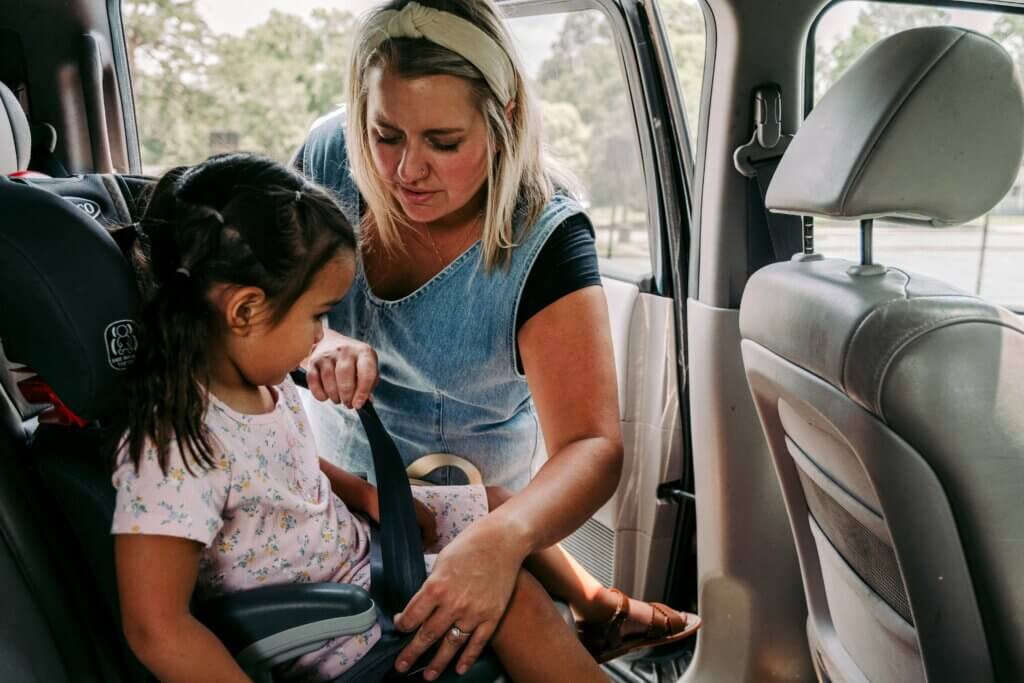Winning Cooperation or Winning a Power Struggle?
Do you remember being a child and thinking, “This is so unfair! I’ll never forget what this feels like. I’ll never treat kids like this when I’m the adult!” I sure do. Luckily, I get lots of chances to actually follow through. In Positive Discipline, we talk about “winning cooperation” from the children we work with. Why would we spend our time & extra effort on “winning cooperation” over just fostering obedience?
Why do you want to win cooperation instead of winning the power struggle?
One thing I love about nannying is that it comes with a lot of flexibility and autonomy. However, we all still have some musts that have to be completed each day. Going to school, eating a meal, or brushing teeth are all things we really do need our nanny charges to get done. It’s natural that we’ll get resistance and hesitance on some of these tasks (kids aren’t little robots!), and in those moments, we get a chance to decide how we, as the adult, will proceed. Yes, you’re probably bigger, maybe smarter, and certainly more experienced than the children you’re caring for, and that really leaves it in your hands to decide: in this moment, do you want to win a power struggle, or do you want to truly win cooperation? I invite you to challenge yourself to the latter. Ask yourself,
“Do I want to be right in this moment, or do I want to nurture connection?”
Focusing on long-term connection is WAY more valuable than winning an argument or power struggle over something menial like which shoes a preschooler is wearing to the park.

What is winning cooperation?
Winning cooperation is when you work cooperatively and empathetically with the children in your care to get them working with you. Again, you are likely bigger and stronger than the kiddos you’re working with, but do we want to strong-arm kids into doing things? I sure don’t! My goal is to invite cooperation in a way that avoids the power struggle. For me, that is the win.
I have no doubt that between brute force, strong language, threats, yelling, and nasty looks, I could get my nanny kids to do practically anything, but holy cow – that will leave us all feeling AWFUL! I don’t want to drive home after work reflecting on how I really bullied some children into compliance today! Yikes! Aside from my personal beliefs around the importance of respect & consent, we are there as professionals, and the bare minimum is that we use our words and reasoning to work with children (just as we expect children to)! Beyond the bare minimum, we have the responsibility (and privilege) to make a difference in their life: helping them grow important skills, being a steady and predictable healthy relationship, and feeling safe.
Instead of winning a power struggle, avoid the power struggle altogether. Stay focused on being a team with your nanny kiddos – it’s you and your charges against the challenge, not against each other!
Luckily, we don’t need to just give-in and adjust our expectations to make this a reality; we just have to change how we coach the kiddos.
How do we do that?
We can win cooperation by first trying to truly understand what a child is telling us and what’s causing the resistance or hesitance. This looks different at different ages and stages. For a tantruming toddler, you may be able to use context clues and what language they can share to figure out what’s wrong, and you can ask them to confirm.
“You are so upset! I think you’re showing me you are frustrated because we have to put on shoes before we go outside.”
With an older child, they may be able to better articulate the problem, but you should still check for understanding. Our assumptions, experiences, and perspective may cloud our understanding of what’s wrong, so always check in to see if you really understand their feelings. This helps you both build capacity for other solutions as well, when you take the time to really understand all that is involved. We might only be seeing the very top layer of a deeper issue or feeling. Remember the iceberg metaphor – dig deeper and get curious about what’s going on beneath the behavior.
Once you understand their feelings, show empathy. You can show empathy without condoning their behavior. A great way to do this is to share a time you’ve been in a similar situation or felt the same way.
“I’m hearing you’re so upset that Whitney invited Kate to sleepover and not you. That reminds me of when Liza and Tiffany went to coffee last week without me! It really hurts to be left out, doesn’t it?”
Offering validation & empathy will often help win cooperation, but there’s plenty of other strategies as well. At Sproutable, we love talking about “finding the fun,” which is really just popping into their world for a minute and finding spots to add elements of play, while still getting everything done respectfully. Adding a silly song or dance, a funny voice, or a playful element can really shift the mood in the room, while still being respectful and appropriate for the situation & environment. You can absolutely maintain high expectations and firm boundaries while still partnering with the children in your care to find mutually beneficial solutions – I do this all the time! Their opinions, preferences, and feelings are just as valid as mine.
Another quick way to check yourself on if you’re winning cooperation or winning a power struggle is by checking-in with your expectations. Do you have expectations around manners, language, respect, or gratitude from when you were a child that aren’t serving you? Knowing a bit about brain development and growth can help you keep reasonable expectations for the kiddos you work with. It’s easier to get on well with a toddler when you have fair expectations for what toddlers do. We can still coach kids, kindly, without getting into a power struggle or “teaching them a lesson.”
Winning Cooperation in Practice
This idea isn’t something that immediately clicked with me. I definitely had some old beliefs to unpack around obedience and gratitude from my own childhood that were not helpful to me or the kiddos I worked with. It’s easy to think, “Why should I do extra work to get a kid on board? They should listen to me (AND say thank you for the great instruction)!”
I think my “aha!” moment came when I was reading “How Toddlers Thrive” by Tovah Klein (highly recommend!). She shares a story about a toddler who arrived at school and was hysterical because he hadn’t gotten to push the elevator button that he always pushed on the way to the classroom – so relatable, right?! The child’s mother says, “He needs to learn he cannot always have his way,” which sounds reasonable. The toddler teacher, in the story, validates his feelings by telling him, “You wanted to push that button so badly!” and started walking the little boy back to the hallway, so he could push the button. The mother in the story (and I, as the reader) thought that was overkill, and she asks, “Aren’t we spoiling him?”
Here’s the shift – “No,” we insisted, “this is not spoiling,” and once he pushed the button, he walked back in, validated, and ready for school.” This was truly shocking to me! Rewarding a kid for throwing a fit on the way to school? But no – Tovah Klein explains – “From the mother’s point of view, it was just a button. There would be other chances to push buttons, and her son needed to learn he couldn’t always get what he wanted. Reasonable? For an adult, yes. As a goal for your child over time – to learn to handle disappointment? Absolutely. But in that moment when he had an established routine and was on his way to school to say good-bye. From his two-and-a-half-year-old mind’s view, he had a ritual, and he knew what step was . . . . “I know my ritual and you just ruined it!”
This was a powerful realization – I was only looking at my side of a power struggle! I was only considering my adult perspective and our end-goal. When I really truly stop to put myself in their cute little shoes, I can typically see their perspective, and that gives me so much more room for empathy, compromise, and creative ways to find a solution that works for everyone. When I feel a power struggle might be sneaking up on me and my nanny charges,
I’ll pause and ask myself, “Does this matter more to me or to them?”
Turns out, I can be way more flexible than I initially thought – especially about little stuff, like who gets to push the elevator button!
Next time you feel yourself getting heated at work, stop and notice: am I about to get into a power struggle with this sweet little kiddo? WHY!? Pause, and see where you can wiggle or change the vibe in the room: do you understand their resistance? Are your expectations appropriate? How can you “find the fun” in this moment and invite their cooperation? Winning cooperation truly feels better, for everyone, than winning the power struggle.





Comments